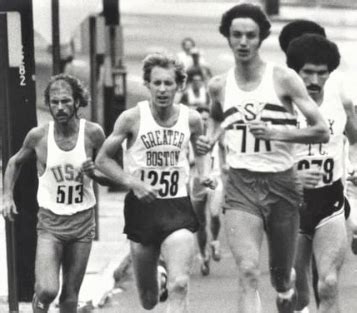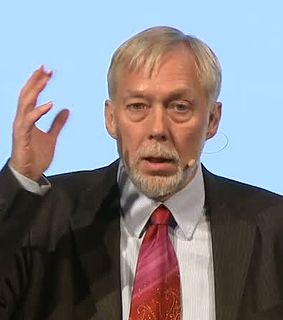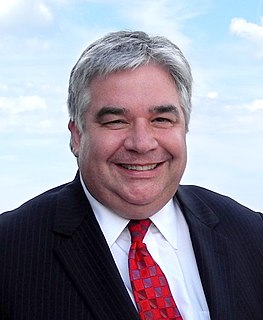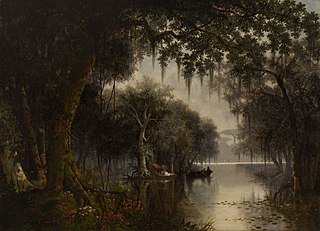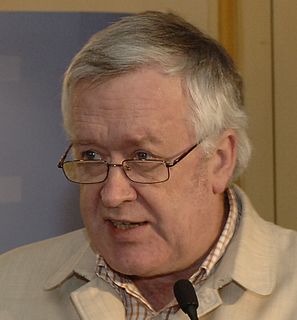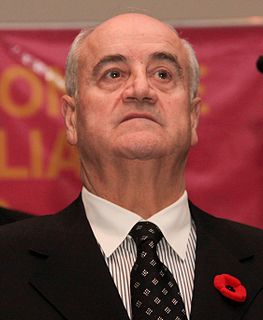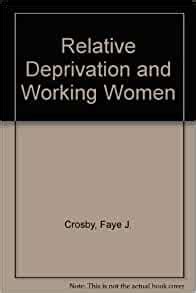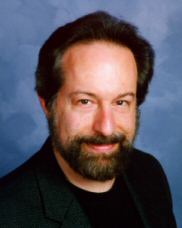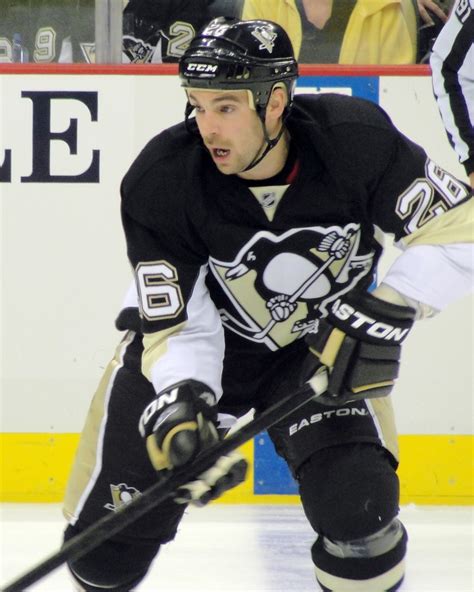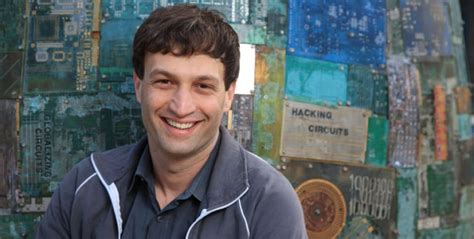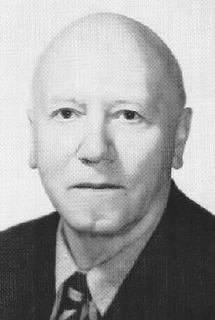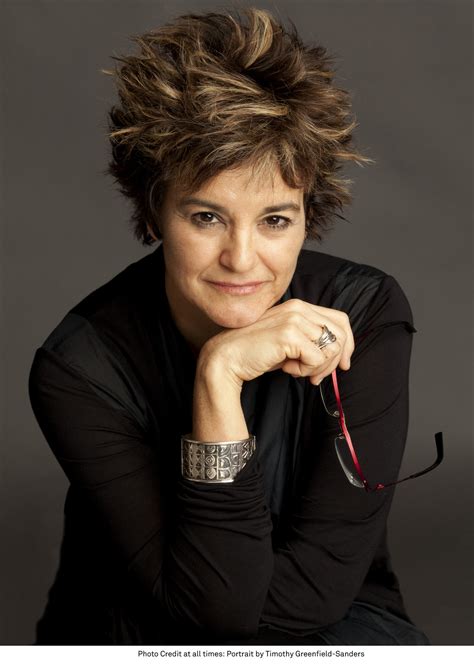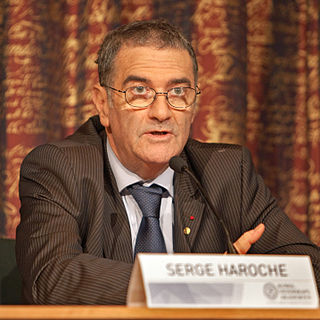Top 294 Researchers Quotes & Sayings - Page 5
Explore popular Researchers quotes.
Last updated on April 20, 2025.
Don't assume that the way that one searches and researches is the same from one era to another - it isn't. In the 19th century, most research was done by amateurs: either individuals who were rich or individuals who had a day job. In the 20th century, most researchers worked at universities or think tanks and received money from the government or from foundations to pursue their work. In our time, the sources of support and the locations for research may be quite different.
The director of the institute where I was working apologized about these young, enthusiastic researchers when the World Bank visited because he was afraid the institute would lose the World Bank consultancies.I went back home and started the Research Foundation for Science, Technology, and Ecology?an extremely elaborate name for the tiny institute that I started in my mother?s cow shed. My parents handed over family resources and said, ?Put them to public purpose.? That?s how I survived.
My introduction to dissociation had been at Kenneth Cooper's clinic in January of 1975. Cooper had assembled a gaggle of top American distance runners and a half dozen top researchers, the intent being to figure out what the difference was - physiologically, biomechanically, psychologically - between elite and subelite runners.
Some people think that evolutionary psychology claims to have discovered that human nature is selfish and wicked. But they are flattering the researchers and anyone who would claim to have discovered the opposite. No one needs a scientist to measure whether humans are prone to knavery. The question has been answered in the history books, the newspapers, the ethnographic record, and the letters to Ann Landers. But people treat it like an open question, as if someday science might discover that it's all a bad dream and we will wake up to find that it is human nature to love one another.
Oral history is a research method. It is a way of conducting long, highly detailed interviews with people about their life experiences, often in multiple interview sessions. Oral history allows the person being interviewed to use their own language to talk about events in their life and the method is used by researchers in different fields like history, anthropology and sociology.
As a city powered by our country's knowledge economy, Toronto will continue to benefit from developing, attracting and retaining the world's most promising young researchers at the University of Toronto. Our government will continue to invest in research awards that lead to long-term social and economic benefits for Canadians.
All of the elements of the comic way tend to spread to others, insinuating joy where it was previously absent. Conversation has a way of leaping among persons, as it does at parties and celebratory gatherings. Storytelling always begets storytelling. It is difficult to watch others at play without wanting to join them. This is not only a human phenomenon, for researchers have consistently noted that animals at play are often imitated by other animals. So wherever it is possible to initiate a playful activity, it will have a good chance of replicating itself through other parts of the system.
It was not that long ago a bunch of researchers got on a boat and started chugging for the South Pole to find evidence of the melting glaciers and global warming, and they got stuck in the ice and it took three ice breakers and a helicopter to rescue them. Yet they still carry the day in the pop culture that global warming is happening.
But carbon 13 [the carbon from corn] doesn't lie, and researchers who have compared the isotopes in the flesh or hair of Americans to those in the same tissues of Mexicans report that it is now we in the North who are the true people of corn.... Compared to us, Mexicans today consume a far more varied carbon diet: the animals they eat still eat grass (until recently, Mexicans regarded feeding corn to livestock as a sacrilege); much of their protein comes from legumes; and they still sweeten their beverages with cane sugar. So that's us: processed corn, walking.
One study on the treatment of asthma patients conducted by researchers John Goyeche, Dr. Ago, and Dr. Ikemi, suggests that any effective treatment should address suppressed emotions-such as anxiety and self-image-as well as the physical dimension. To achieve this, they encourage correction of poor posture, and helping the person relax the irrelevant respiratory muscles while restoring full diaphragmatic breathing. They also recommended finding ways for getting rid of excess mucus. The good news is that a well rounded breath practice will do all these things.
Unfortunately, some scientists behave like preachers, delivering sermons to people. What this approach ignores is the fact that there are many threats in our world that must be weighed against one another. If I'm driving my car and find myself speeding toward an obstacle, I can't simple yank the wheel to the side without first checking to see if I'll instead be driving straight into a crowd of people. Climate researchers cannot and should not take this process of weighing different factors out of the hands of politics and society.
Researchers, with science as their authority, will be able to cut animals up, alive, into small pieces, drop them from a great height to see if they are shattered by the fall, or deprive them of sleep for sixteen days and nights continuously for the purposes of an iniquitous monograph. . . . Animal trust, undeserved faith, when at last will you turn away from us? Shall we never tire of deceiving, betraying, tormenting animals before they cease to trust us?
Our government's investments in science, technology and innovation are ensuring that ideas move from the lab to the marketplace faster, creating jobs and opportunities for Canadians. Through our investment in Mitacs Elevate, we are providing training and new career opportunities for talented researchers while ensuring that local businesses such as Vision Extrusions stay competitive and continue to create jobs here in Woodbridge.
New knowledge has led to the recognition in the theory of evolution of more than a hypothesis. It is indeed remarkable that this theory has been progressively accepted by researchers, following a series of discoveries in various fields of knowledge. The convergence, neither sought nor fabricated, of the results of work that was conducted independently is in itself a significant argument in favor of this theory.
By leaning on companies, by leaning on infrastructure providers, by leaning on researchers, graduate students, post-docs, even undergrads, to look at the challenges having an untrusted internet, where we have to put our communications on wires that are owned by a phone company that we can't trust, that's working in collaboration with a government that we can't trust, in areas around the world, we can restructure that communications fabric in a way that it's encrypted.
One of the things that Baidu did well early on was to create an internal platform for deep learning. What that did was enable engineers all across the company, including people who were not AI researchers, to leverage deep learning in all sorts of creative ways - applications that an AI researcher like me never would have thought of.
That so many of us find it entirely plausible that a vast network of researchers and health officials and doctors worldwide would willfully harm children for money is evidence of what capitalism is really taking from us. Capitalism has already impoverished the working people who generate wealth for others. And capitalism has already impoverished us culturally, robbing unmarketable art of its value. But when we begin to see the pressures of capitalism as innate laws of human motivation, when we begin to believe that everyone is owned, then we are truly impoverished.
Researchers studied 34 students at the University of Virginia, taking them to the base of a steep hill and fitting them with a weighted backpack. They were then asked to estimate the steepness of the hill. Some participants stood next to friends during the exercise, while others were alone. The students who stood with friends gave lower estimates of the steepness of the hill. And the longer the friends had known each other, the less steep the hill appeared.
David Agus is one of America's great doctors and medical researchers, a man dedicated to improving the health of as many people as he can. Written in a style and format that will truly engage readers, The End of Illness presents a dramatic, new way of thinking about our own health-a way that could lead to greatly improving the quality of life for millions, starting right now.
Surprisingly, it's forgiveness, not guilt, that increases accountability. Researchers have found that taking a self-compassionate point of view on a personal failure makes people more likely to take personal responsibility for the failure than when they take a self-critical point of view. They also are more willing to receive feedback and advice from others, and more likely to learn from the experience.
I naturally gravitate toward the big picture which isn't necessarily advantageous when you go on to a career in research because successful researchers usually choose a pretty narrow channel. So having tunnel vision actually helps you stay where you are supposed to stay. The big picture in medical care was looking at the underlying causes of all of this pathology. I really wanted to do something about that and play a meaningful role in changing the trajectory of people's lives and their health and by changing their health, changing the quality of their lives.
Researchers have known for some time now that the cornerstone of all degenerative conditions, including brain disorders, is inflammation. But what they didn’t have documented until now are the instigators of that inflammation—the first missteps that prompt this deadly reaction. And what they are finding is that gluten, and a high-carbohydrate diet for that matter, are among the most prominent stimulators of inflammatory pathways that reach the brain.
At every level, from the microcellular to the psychological, exercise not only wards off the ill effects of chronic stress; it can also reverse them. Studies show that if researchers exercise rats that have been chronically stressed, that activity makes the hippocampus grow back to its preshriveled state. The mechanisms by which exercise changes how we think and feel are so much more effective than donuts, medicines, and wine. When you say you feel less stressed out after you go for a swim, or even a fast walk, you are.
Our Government understands that local, community organizations are essential in addressing social issues like economic development, poverty, education and integration in Canadian communities. The Community and College Social Innovation Fund will connect the innovative talent of researchers and students at colleges and polytechnics to meet the research needs of local community organizations to build stronger, safer, healthier communities.
When men and women across the country reported how happy they felt, researchers found that jugglers were happier than others. By and large, the more roles, the greater the happiness. Parents were happier than nonparents, and workers were happier than nonworkers. Married people were much happier than unmarried people. Married people were generally at the top of the emotional totem pole.
Researchers keep identifying new species, but they have no idea about the life cycle of a given species or its other hosts. They cut open an animal and find a new species. Where did it come from? What effect does it have on its host? What is its next host? They don't know and they don't have time to find out, because there are too many other species waiting to be discovered and described.
Books on scientific photography with such beauty, breadth, and insight are rare. Felice Frankel's Envisioning Science is chock full of mind-boggling images and valuable information--not only for curious artists, students, and lay people, but also for seasoned researchers and photographers. The eclectic Frankel is both a scientist and photographer, and with the cold logic of the one and the inspired vision of the other, she covers an array of topics sure to stimulate your imagination and sense of wonder at the incredible vastness of the physical world.
In the first stage of insight-building, all that researchers can do is observe phenomena. Second, they classify the phenomena in a way that helps them simplify the apparent complexities of the world so they can ignore the meaningless differences and draw connections between the things that really seem to matter. Third, based on the classification system, they propose a theory. The theory is a statement of what causes what and why, and under what circumstances.
I do enjoy having researchers and writers around me because I am getting a lot of different influences now from the opposite sex, different races, people of different ages, who are helping write the routines. So I am seeing things from other people's perspectives, which I never really had to do before.
I think I'm a reporter's editor. Being a good reporter is a specific skill, one I admire and don't possess myself - I appreciate people who know how to ask the right questions, who are excellent researchers, who know how to assemble information, and I enjoy working with them to shape their information into an article. Good reporters tend to be receptive to editing, and to a more collaborative form of writing in general, and you always end up learning more from how they work than you expect you will.
The connection between health and productivity at work is intuitively obvious but has not been demonstrated to the satisfaction of either researchers or corporate financial officers. Ronald Kessler and Paul Stang help to bridge the usual gap between research and the marketplace with the help of a top-notch group of the best 'real-world' investigators obtainable-all in the cause of making the case that employee health should be treated as an investment in business performance-thus creating the new discipline of health and productivity management.
By creating a self-policing, self-reporting, sort of self-monitoring culture through law, through statute, and imposing that on the academic world, I think not only are we losing a significant measure of freedom in academic traditions and in our civil society, but we're actually making ourselves less competitive with every other country around the world that does not do that. Because that's where researchers are going to go and that's where academics are going to go. And ultimately, that's where breakthroughs are going to occur.
We climate researchers can only offer possible scenarios. In other words, things could end up being completely different. But there are undoubtedly parts of the world that will benefit on balance from climate change. Those areas tend to be in the north, where it has been cold and uncomfortable in the past. But it's considered practically heretical to even raise such issues.
I definitely love history. I'm not formally trained or educated in history, but you could say I did go back to college in 2008 to do Untold History of the United States. That took five years. Co-author Peter Kuznick has been teaching history for something like 35 years, at American University and other places. His group of researchers brought me into contact with a lot of books.
I shall no doubt be blamed by certain scientists, and, I am afraid, by some philosophers, for having taken serious account of the alleged facts which are investigated by Psychical Researchers. I am wholly impenitent about this. The scientists in question seem to me to confuse the Author of Nature with the Editor of Nature; or at any rate to suppose that there can be no productions of the former which would not be accepted for publication by the latter. And I see no reason to believe this.
Our researchers into Public Opinion are content That he held the proper opinions for the time of year; When there was peace, he was for peace: when there was war, he went. He was married and added five children to the population, Which our Eugenist says was the right number for a parent of his generation, And our teachers report that he never interfered with their education. Was he free? Was he happy? The question is absurd: Had everything been wrong, we should certainly have heard.
There were over 40,000 pages of FBI documents of which only about half are currently available to scholars and researchers. I think that this 40th anniversary of the assassination is a good opportunity for us to say that now is the time to declassify all FBI material on Malcolm X. There really is a need for us to challenge the US government for its refusal to open up its own archives 40 years after the death of Malcolm.
We have emphasized the importance of applied action research because it allows evidence-based policy and program development and a focus on learning. We are also committed to using a participatory approach in which local people, local program managers and providers, local researchers, women's health activists, and national decision-makers play the leading role. International "experts" from technical assistance agencies or universities can make important contributions, but they certainly don't have all the answers.
It’s irrelevant to me what young Singaporeans think of me. What they think of me after I’m dead and gone in one generation will be determined by researchers who do PhDs on me, right? So there will be a lot of revisionism. As people revised Stalin, Brezhnev and one day now Yeltsin, and later on Putin. I’ve lived long enough to know that you may be idealised in life and reviled after you’re dead.
It’s impossible to monitor every thought we have. Researchers tell us that we have about sixty thousand thoughts a day. Can you imagine how exhausted you’d feel trying to control all sixty thousand of those thoughts? Fortunately there’s an easier way and it’s our feelings. Our feelings let us know what we’re thinking.
(H)er qualifications for the Supreme Court are non-existent. She is not a brilliant jurist, indeed, has never been a judge. She is not a scholar of the law. Researchers are hard-pressed to dig up an opinion. She has not had a brilliant career in politics, the academy, the corporate world or public forum. Were she not a friend of Bush, and female, she would never have even been considered.
People have been accusing me of that ever since I got involved in politics. Some would just like to stick a pin through me like insect researchers do a dried butterfly and then say: Look, there's the banker who doesn't like people. If that were the case, I would not be here. I am not arrogant to the French - I am determined.
The Documents Project has actively collected documentation on both island-based Puerto Rican art as well as Nuyorican art in the United States through partnerships and researchers ceded at the University of Puerto Rico's museum in San Juan and Hunter College's Center for Puerto Rican Studies in New York City, respectively.
I have always believed that scientific research is another domain where a form of optimism is essential to success: I have yet to meet a successful scientist who lacks the ability to exaggerate the importance of what he or she is doing, and I believe that someone who lacks a delusional sense of significance will wilt in the face of repeated experiences of multiple small failures and rare successes, the fate of most researchers.
There is a point of view among astronomical researchers that is generally referred to as the Principle of Mediocrity. ... If the Sun and its retinue of worlds is only one system among many, then many other systems will be like ours: home to life. Indeed, to the extent that this is true, we should be prepared for the possibility that, even in the Milky Way galaxy, billions of planets may be carpeted by the dirty, nasty business known as life.
I believe that a core problem with undergraduate education, especially at research universities like Harvard, Stanford, NYU, etc, is that most teaching is done by PhDs, who by temperament, training, interests, and rewards are researchers first. So they spend most of their time and energy probing a snip of a field's cutting edge. In my view, the attributes needed to be a transformative undergraduate instructor are pretty orthogonal to that. It would seem that undergraduate education would be superior if there was a separate track for teaching faculty.


